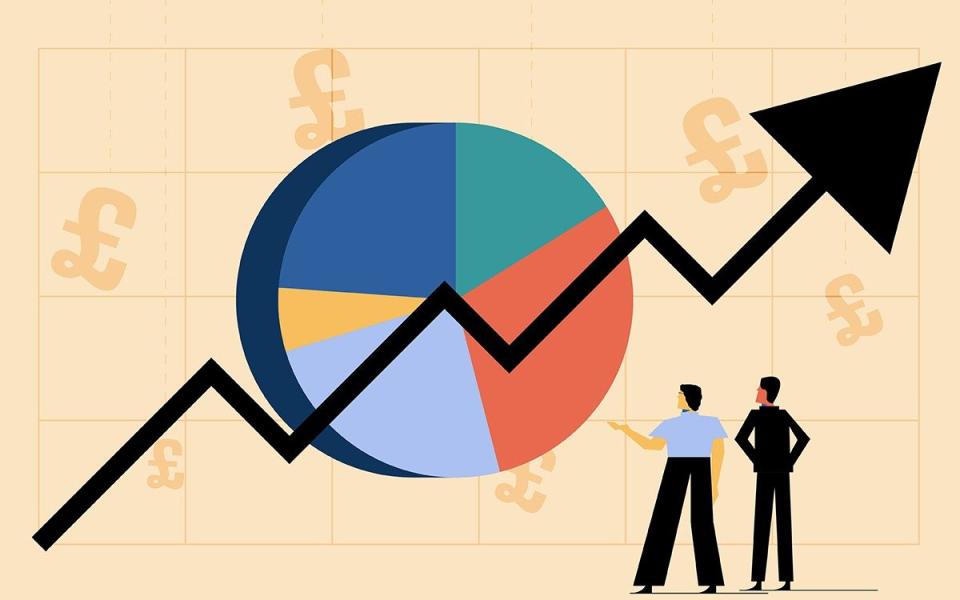A hidden feature of this stock allows us to predict a 100pc rise in the share price

Some readers, Questor suspects, will wince at this striking fact about today’s stock: it has made 17 acquisitions over the past decade or so.
But while some investors, not unreasonably, avoid acquisitive companies on the basis that it’s easy to overpay and it can be hard to manage the businesses bought, a closer look at the way SDI goes about buying and running the companies it acquires offers more than reassurance: it suggests that the potential gains to be made from the stock are much bigger than anything predicted by professional analysts.
Eric Burns, of Sanford DeLand Asset Management, whose Free Spirit fund recently bought a stake in SDI, says he made this discovery thanks to a chance recollection from his own earlier career as an analyst at a City stockbroker. “I remember researching a company called Tracsis, which also made a lot of acquisitions,” he says.
“When I estimated how much the company would make in profits over the coming years I had to restrict myself to earnings from the business as it was at the time – I couldn’t predict profits from companies it hadn’t yet bought. As it tended to make acquisitions on a regular basis, the result was that our earnings estimates would often fall short.
“It’s a similar story at SDI, except that, because I now work for a fund manager rather than a broker, whose research is published, I have the freedom to take into account the company’s likely acquisitions when I estimate its earning power over the years ahead.
“It has tended to make two acquisitions a year and so far it has not made a mess of any of them. On that basis I estimate its value at around 300p a share.” The current share price is just 153p.
Burns says he has also calculated a value for SDI on the assumption that it does not make any more acquisitions. That estimate is around 220p a share. The discount of the current share price to this figure, never mind to 300p, gives him a margin of safety should anything go awry at SDI.
But it’s not just these numbers that offer reassurance about the company and its acquisitive business model; we can take comfort too from the way it goes about choosing and then running the businesses it buys.
“SDI is considered to be a ‘good acquirer’,” Burns says. He takes as an example LTE, a scientific equipment maker it bought last year. “We went with SDI’s boss to see LTE last week because we were keen to examine the process by which it had decided to sell to SDI,” he adds.
“We heard that the two businesses had known each other for some years and that LTE, which was family owned before the sale to SDI, had been looked at by private equity buyers in the past.
“LTE was very keen to deal with SDI because of the reputation it had as a buyer after its acquisition of other businesses. It doesn’t rip the heart out of them – there are no mass redundancies, no accountants turning up to slash costs. The businesses it buys are left to carry on as before, with their existing brand and staff.”
Loss of key personnel can be a problem when a business is bought by an acquirer keen to cut costs or change the culture but Burns says only one of LTE’s 70 employees left after SDI took it over, and that employee “had had a very bad experience at a previous employer that had also been taken over”.
You may be wondering, however, how SDI makes a good return on the businesses it buys if it doesn’t seek efficiency savings.
“It buys companies that are already profitable but normally too small to attract much interest from private equity,” says Burns. “This means it can negotiate keen prices, typically just four to six times earnings on the ‘Ebit’ measure.”
In other words, the acquired business pays for itself in just a few years, after which its cash flows can help the company fund later acquisitions. This avoids the need to take on big debts or to “issue new shares like confetti”, Burns says, so earnings are not diluted for existing shareholders.
Its history of successful acquisitions has helped it to grow sales by 36pc a year over the past five years and earnings by 40pc a year.
“It’s a nice, steady growth business,” Burns says. “People don’t appreciate its value because brokers can’t account for future acquisitions. It’s a long-term buy and hold stock.”
Questor says: buy
Ticker: SDI
Share price at close: 153p
Read the latest Questor column on telegraph.co.uk every Sunday, Tuesday, Wednesday, Thursday and Friday from 6am.
Read Questor’s rules of investment before you follow our tips

 Yahoo Finance
Yahoo Finance 